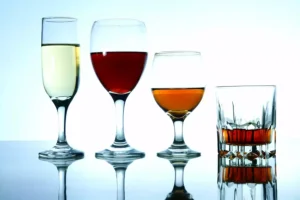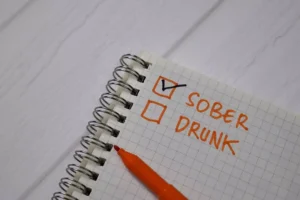
Some individuals could improve their symptoms by limiting the amount of alcohol they consume. People who experience night sweats regularly after drinking may have an issue with alcohol. There are many risks of long-term alcohol use, including cancer and liver damage. For this reason, experts recommend seeking help if a person experiences persistent night sweats related to alcohol consumption. Night sweats may also result from alcohol withdrawal or alcohol intolerance.

Alcohol Night Sweats: When to be Concerned
- When one consumes alcohol at a faster rate than this, accumulation of the substance takes place in the blood, leading to side effects such as sweating.
- Night sweats are a common sign of alcohol withdrawal, which is a condition that can develop when a person with alcohol dependency stops drinking alcohol.
- Your doctor will assess your medical history and run tests to look for underlying health conditions that could cause your sweating.
- It is also recommended that you pace drinking alcohol evenly over three days or more.
- This typically happens with binge drinkers and people who realize they have a drinking problem and attempt to fix it.
- With alcohol intake, the blood vessels in the skin tend to widen when the heart rate speeds up.
True night sweats cause you to soak your clothing and sheets with perspiration. If they’re severe, you may awaken several times does alcohol make you sweat every night to change your clothes and bedding. Interrupted sleep like this is hardly restful, and it can be dangerous.
Managing conditions
- Night sweats can also be a symptom of alcohol withdrawal, which occurs when someone who is dependent on alcohol suddenly stops or reduces their drinking.
- This can lead to facial flushing, dizziness, rapid heartbeat, headache and nausea.
- The effect is more pronounced when alcohol is consumed in substantial amounts or over a short period, commonly referred to as binge drinking.
Most of the alcohol you consume is broken down into byproducts through metabolism within your body. You probably don’t think of being sweaty as a good thing, but it serves an important function. These night sweats can be unsettling and disruptive to sleep patterns, requiring attention and understanding. Alcohol also increases urination, which makes your body lose water along with sweat and can lead to dehydration.

Alcohol Withdrawal and Night Sweats

Although perspiring will help cool down your body, it won’t expel alcohol from your system any faster. To cut back on drinking, try setting an alcohol limit for yourself before going out or replacing drinks with sparkling water or low-calorie mocktails. Alcohol https://ecosoberhouse.com/ intolerance is a condition characterized by an immediate, uncomfortable reaction to alcohol consumption. Unlike alcohol allergy, which is rare and involves the immune system, intolerance generally stems from a genetic inability to metabolize alcohol properly.
- Our science-backed approach boasts 95% of patients reporting no withdrawal symptoms at 7 days.
- When you cut back on drinking, your body may experience withdrawal symptoms such as night sweats.
- Most likely, your body is working overtime to metabolize all the alcohol you just put into it.
- While many people naturally experience a body temperature drop overnight as they sleep, studies show alcohol might actually block this natural cycle when one is intoxicated.
A person should speak with a doctor if these symptoms do not improve. Without diagnosis and treatment, it could lead to liver complications. Sometimes, a person may appear to have alcohol intolerance but react to another ingredient in a drink.

- If your night sweating is disrupting your sleep and life, changing your relationship with alcohol can make a big difference.
- It’s essential to distinguish alcohol intolerance from addiction, as the former is a response to the body’s difficulty in breaking down alcohol rather than a psychological dependency.
- We offer long-term residential addiction treatment for men and women struggling with drug & alcohol addiction.
People with alcohol intolerance lack the enzyme, Aldehyde dehydrogenase (ALDH2), which people use to digest alcohol. This is why some people wake up and immediately drink alcohol (the hair of the dog) to manage a bad hangover. If you’ve come home after a night of binge drinking and start sweating in your sleep, this can be attributed to any of the causes of sweating while drinking. Night sweats from alcohol occur for many of the same reasons you might sweat while drinking.
